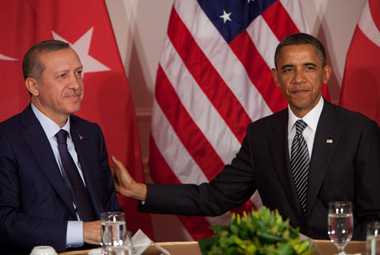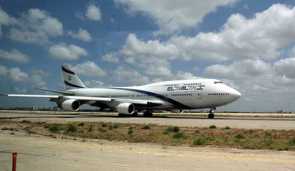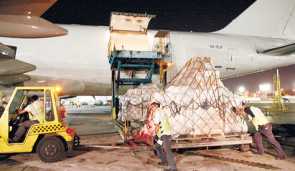Abraham H. Foxman
National Director, Anti-Defamation League
For a number of decades, I have been deeply engaged in promoting close relationships between the United States and Turkey and between Israel and Turkey.
I am deeply pained, however, that even as Turkish Foreign Minister Ahmet Davutoglu travels to the United States this week for talks with Secretary of State Hillary Clinton, to say it is becoming increasingly difficult for me to sustain that commitment.
Like the U.S., both Turkey and Israel are Western-oriented, share a common commitment to democratic values, and hold free elections. The U.S. has long considered Turkey a vital regional ally — militarily, diplomatically and economically – and those shared interests are also relevant with respect to Israel. The Israeli and Turkish militaries have forged an extremely close relationship, born from common enemies and security concerns, and, until recently, this partnership translated into joint combat exercises, the sale of weapons technologies to one-another, and cooperation on confronting strategic threats.
On the economic front, Israel has become one of Turkey’s most important trading partners. Trade volume between the two countries has risen significantly during the past decade, currently hovering around $3.5 billion annually.
When it comes to humanitarian assistance, both countries have repeatedly aided each other. In the aftermath of the 1999 and 2011 earthquakes in Turkey, Israel played an important role in the rescue efforts, dispatching special recovery teams to search for survivors while contributing significant aid to the devastated regions. And during the 2010 fire which caused severe damage to Israel’s Carmel region, Turkey responded to Israel’s request for aid and sent along special airplanes to help extinguish the raging fire.
For decades, Turkey has been a beacon of democracy, remaining a shining example for the Muslim world. Yet I am concerned that its democratic light has begun to fade.
The country’s recent deviation from democracy can be seen in Turkey’s emerging attitude toward a free press, where Prime Minister Recep Tayyip Erdogan and his government are demonstrating an unwillingness to tolerate criticism of their policies. They have unabashedly asked the public to boycott newspapers and TV channels owned by the Dogan Media Holdings, a media group that is often critical of AKP policies, and has expressed fears that Erdogan’s government is trying to undermine the secular basis of Turkish society.
Perhaps more troubling was the 2010 world press freedom index report from Reporters Without Borders, which lists Turkey at 138 out of 178 countries ranked, down from 98th place in 2005. According to the Turkish Journalists Union, there are currently 97 journalists in Turkish prisons, a figure exceeding the number of those detained in China.
Coinciding with undemocratic policies is the recent fracturing of Turkey’s relationship with Israel, an unraveling that may be reaching a dangerous tipping point.
In the last three years, there has been a conscious attempt by the Erdogan government to shift toward a foreign policy that negates long-standing alliances in favor of populist diplomatic initiatives and has led to a deterioration of the Turkish-Israeli relationship.
One can point to the testy exchange between Erdogan and Israeli President Shimon Peres during the 2009 Davos forum — which saw Erdogan, in a discussion on Israel’s activities in Gaza, storm off the stage — as the moment when the public was first exposed to the deteriorating Turkish-Israeli relations. This was followed by a cooling of diplomatic and military relations between the two countries, and came to a head with the unfortunate loss of life during the flotilla incident of May 2010, leading Turkey to expel Israel’s ambassador from Ankara.
Yet, instead of trying to work out their problems and salvage the country’s relationship with Israel, Turkish government officials, led by Erdogan and Davutoglu, opted for greater distance and have resorted to rhetorical and diplomatic provocations against Israel.
This approach can be clearly seen in the recent official visit of Hamas leader Ismail Haniyeh to Turkey, a gesture that Israel justifiably saw as another diplomatic slap in the face. During his visit, Haniyeh held meetings with Erdogan and his government, was received with a standing ovation in Turkish Parliament, and met with IHH members on the Mavi Marmara boat, an act of pure contempt designed to stir up tensions surrounding the flotilla incident. Haniyeh was afforded this warm reception, despite being one of the principal leaders of a U.S. and E.U. designated terror organization that openly calls for Israel’s destruction. Just a few short years ago, inviting a Hamas leader to Turkey would have been unthinkable.
Haniyeh’s Turkish visit was a clear indication of the new and dangerous diplomatic path being carved out by Erdogan and the AKP. Considering the frequent comparisons made between Hamas and the PKK, both of which are responsible for killing thousands of innocent civilians, there is a certain dark irony to the warmth showered upon the Hamas leader by the Turkish government. I have no doubt it would be unacceptable for Israel’s prime minister to host the head of the PKK in Jerusalem, yet Erdogan has hypocritically rejected the classification of Hamas as a terrorist organization, fondly referring to it as a “resistance movement trying to protect its country under occupation.”
I greatly fear that Turkey’s fraying democracy and new foreign policy approach will lead the country on a dangerous collision course with its allies in the West. Hosting terrorist organizations like Hamas serves only to further isolate Turkey from the U.S. and Israel, and demonstrates nothing more than populist diplomacy. If Erdogan and the AKP are genuinely concerned about Turkish democracy and sustaining the country’s standing in the international community, I would respectfully urge them to re-evaluate and reverse their anti-democratic initiatives and reassess the government’s diplomatic approach towards Israel. Re-energizing the Turkish-Israel alliance would benefit Turkey, the U.S. and the region.
I am hopeful Turkey will find its way back to a place where I can once again feel comfortable as an advocate for warm relationships between Turkey and the U.S., and Turkey and Israel.
https://www.huffpost.com/entry/turkey-israel-relations_b_1260736





